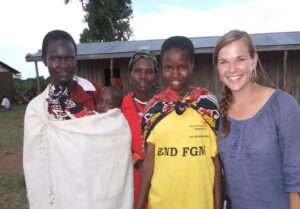How should we work to protect human life?
One of the most fundamental principles of catholic social justice is the protection of every human life and the preservation of the dignity of every human being because every human being is made in the image and likeness of God (Genesis 1:27). Human life warrants protection in all circumstances as the highest priority because without it, no other rights or protections can achieve their purpose. The principles of life and dignity are deeply enmeshed. It is not simply enough to protect human life, one must also work to preserve the dignity of that human life through every condition and stage of development. This is an incredibly broad principle which includes protecting each unborn baby to conserving the planets ecosystem for all of humanity.

When we fail to acknowledge as part of reality the worth of a poor person, a human embryo, a person with disabilities – to offer just a few examples – it becomes difficult to hear the cry of nature itself; everything is connected.
Pope Francis, Laudato Si’
Sometimes, the mandate to protect human life may seem as though it is limited to traditional pro-life issues such as abortion, euthanasia, cloning, embryonic stem cell research and other bioethical issues. Traditionally social justice issues such as fair wages and dignified working conditions, poverty and homelessness, human trafficking and slavery, refugees and asylum seekers, the promotion of peace and avoidance of war and caring for creation, may seem as though they have nothing to do with the protection of human life. However, in reality each issue mentioned is deeply connected with all the other issues as they both have as their common aim the protection of human life and dignity from conception, through every stage of human development, until natural death. Pope Francis has affirmed that none of these issues should be seen in isolation from one another.
Issues like abortion and euthanasia deal with direct, immediate threats to the integrity of human life. Social justice issues usually deal with indirect, but equally lethal, longer term threats to the integrity of human life and human rights.
How many human lives are lost as a result of abortion and euthanasia each year? How many human lives are lost each year as a result of poverty, homelessness, unsafe working conditions, slavery and human trafficking, and contaminated environments?
Situations around the world that are still costing people their lives. Over 700 people die each year trying to cross the US-Mexico border; Some of them are smuggled and some are trafficked. In Australia, the cost in human life as a result of domestic violence is shown in the fact that approximately one woman each week is killed by a current or former intimate partner.
According to World Vision, poverty, compounded by a lack of access to healthcare, immunisations and proper nutrition is responsible for the deaths of more than six million children before their fifth birthday. Malnutrition is responsible for 3.1 million deaths in children aged under five. Poverty is a killer not just in developing countries but in Australia as well.

The World Health Organisation estimates that between 2030 and 2050, climate change is expected to cause approximately 3.4 million deaths per year, from malnutrition, malaria, diarrhea and heat stress. Currently, air pollution from fossil fuels is the cause of death for over 5 million people annually.
Recent reports show that the number of suicides in aged care facilities is disproportionately high compared to the rest of the population, due in part to depression, loneliness and isolation and difficulty adjusting to life in a nursing home.
It is impossible to further the common good without acknowledging and defending the right to life, upon which all the other inalienable rights of individuals are founded and from which they develop. A society lacks solid foundations when, on the one hand, it asserts values such as the dignity of the person, justice and peace, but then, on the other hand, radically acts to the contrary by allowing or tolerating a variety of ways in which human life is devalued and violated, especially where it is weak or marginalized. Only respect for life can be the foundation and guarantee of the most precious and essential goods of society, such as democracy and peace.
Pope John Paul II, Evangelium vitae
MORE INFORMATION:
- To find out more about what the Church teaches click here.
- For more information and how you can get involved click here.
